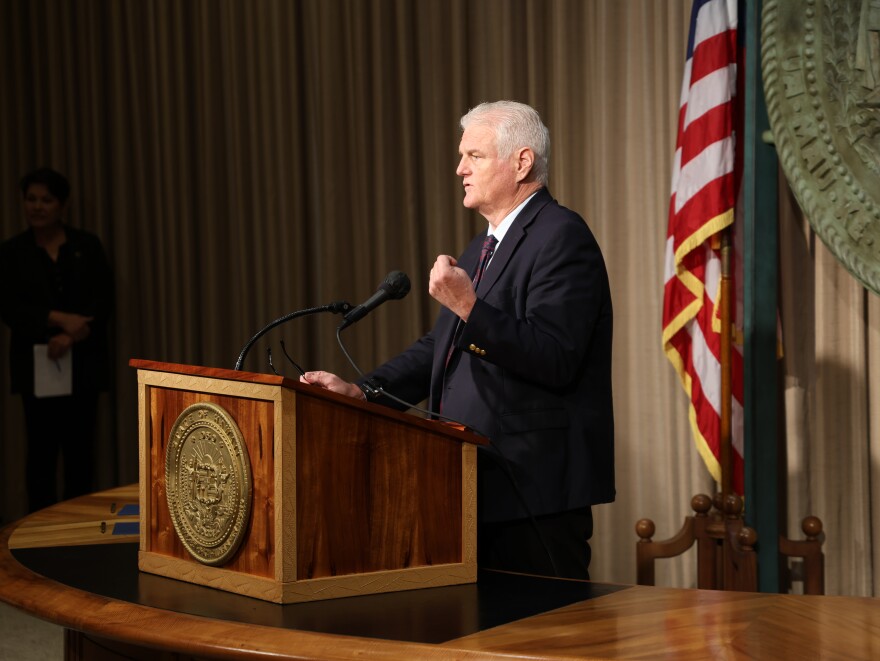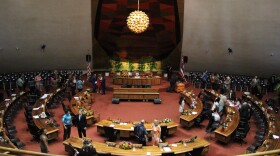Gov. Josh Green has signed into law several bills related to the state Judiciary, including a $400 million budget and a permanent program to help rehabilitate women in the criminal justice system.
The measures were part of a bill-signing ceremony the governor held Thursday. The highlighted bills were House Bill 400 and House Bill 727.
HB 400 appropriates just over $200 million for the state Judiciary for each of the next two years. That funding is for agency staffing, new specialty courts, equipment and technology.

“ I think what's happened in this last session was historic level of support for so many of our most important programs … that are really making a difference in our communities, whether it's community outreach court helping folks who are largely homeless, or Women's Court who are helping women who've suffered trauma and who find themselves in the criminal justice system,” Hawaiʻi Supreme Court Chief Justice Mark Recktenwald said.
The budget includes several capital improvement projects, including $8 million for upgrades and improvements for judiciary facilities statewide, and $4 million for a new South Kohala District Courthouse.
HB 727 makes the Mohala Wahine pilot program, also known as Women's Court, a permanent presence on Oʻahu.
The pilot program began in 2022 as an alternative to incarceration for women who have committed nonviolent offenses, and offers services to women such as substance abuse treatment, housing assistance, and therapy.
On Wednesday, six women were celebrated as part of the Mohala Wahine's first graduating class.
“This was a pilot program … formed in response to the increase of women in the judicial system. A lot of people face abuse. They've, whether the men or women, end up with drug addiction, end up in the courts and end up in prison. And if we can do more to help people get through their struggles, we should. That's what I think this is about,” Green said.
HB 727 also establishes a two-year pilot program in the Kona division on Hawaiʻi Island.
It also appropriates about $1.7 million for the programs over the next two years.





